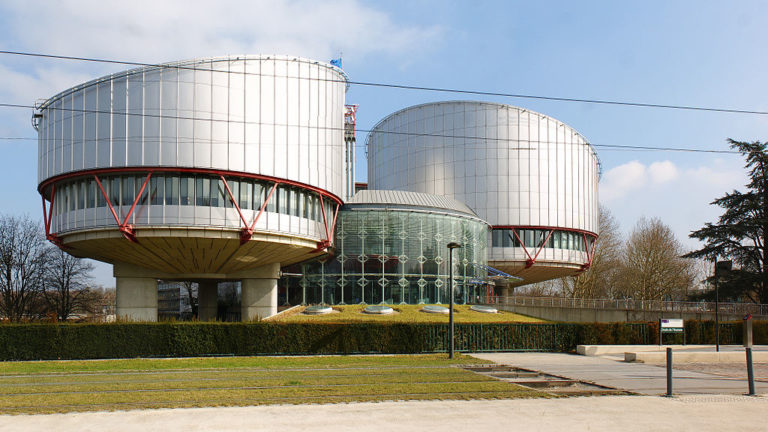
The Catalan National Assembly backs its former president Jordi Sànchez’s appeal of his 9-year prison sentence for the crime of sedition, which he received for his role as a civil society leader and for calling peaceful demonstrations against Spanish repression prior to the October 2017 Catalan independence referendum.
The president of the Catalan National Assembly Elisenda Paluzié, alongside its former president, Jordi Sànchez, announced yesterday that, having exhausted all domestic judicial remedies in Spain, they launched an appeal before the European Court of Human Rights (ECHR) to denounce the disproportionate 9-year prison sentence (of which he spent almost 4 years in jail) that he received for his role as a pro-independence civic leader during the months prior to the October 1st2017 Catalan independence referendum.
During a press conference held in the same location where the 20-S peaceful protest took place 4 years ago, Assemblea President Elisenda Paluzie has given her support to Mr. Sànchez, and stated that “There have been several serious and accredited fundamental rights violations of the European Convention on Human Rights. Among them we must emphasize the violation of the right of assembly, the freedom of expression or the ideological freedom”.
In addition, she added that “all anti-repressive action must legitimize us more internally and externally. At Assemblea we are convinced that the European sentences will reinforce the cause of the self-determination and the independence of Catalonia”.
Mr. Sànchez, in turn, made clear that with this demand he hopes that “the Kingdom of Spain will receive unequivocal corrective measures from the highest European body in the field of justice and human rights.”
He also explained that he is going to Strasbourg “so that no other citizen of Catalonia will ever have the uncertainty that exercising fundamental rights can be the reason for a conviction like mine. This is about defending the rights that should be protected in a democracy.”
International personalities such as Gérard Onesta, former vice president of the European Parliament (France), Clare Daly, Member of the European Parliament (Ireland), and Sébastien Nadot, Member of the French National Assembly and its Foreign Affairs Committee, gave their support via video. Mr Onesta denounced that “Spanish justice is a political justice”, and one that “that manipulates not only facts, but also words”, for instance accusing of “terrorism” many of those who question the democratic quality of the system. Ms Daly criticized the silence of the European Commission on this alarming case and encouraged the Catalan people to keep up their struggle, as by doing so they are also fighting for the rights of all European citizens. In a similar vein, French MP Sébastien Nadot expressed the importance “for Jordi Sànchez to be compensated for the violation of the right he has suffered by Spanish authorities” and called the European Court of Human Rights to closely study his case.
The Catalan National Assembly and Mr. Sànchez trust that once his case is considered at the European court, there will be no doubt that he is a victim of political persecution for the exercise of his fundamental rights, especially for defending the right to self-determination of the Catalan people. European Justice needs to further denounce the politically motivated use of the Spanish judiciary, which shows a grievous lack of judicial independence.
In this sense, the goal of this appeal is to denounce the violation of Mr Sànchez’s fundamental rights to freedom of expression, assembly, freedom of thought, and right to the natural judge, among others, and for the European Court of Human Rights to condemn Spain for these violations of rights. The sentence, which is expected to be condemnatory, should ask the Spanish state to take all the measures it deems necessary to repair the violation of rights.
European courts in Belgium, Germany and Scotland have already dismissed charges for the European Arrest Warrants Spain issued against Catalan representatives in exile, proving that the arguments provided by the Spanish judiciary have no legal backbone, and are politically motivated.
International reactions to Mr. Sànchez’s case
Several jurists and human rights organizations such as the International Commission of Jurists and Amnesty International have actively followed the case of the Catalan pro-independence leaders with concern and have called the prison sentences “a restriction on the freedoms of opinion, expression, and peaceful assembly”. The application and interpretation of the crime of sedition causes a chilling effect and prevents civil society activists from exercising their rights peacefully, out of fear of being prosecuted.
In June 2019, the UN Working Group on Arbitrary Detention confirmed that the detention of Mr. Jordi Sànchez constituted an arbitrary detention. As he had been detained for his political beliefs and activities, the UN body called for his immediate release and compensation for the time spent in pre-trial detention, which the Spanish authorities have since ignored.
In May 2020, the Spanish prosecutor opposed Mr. Sànchez’s leave from prison to undertake voluntary work for which he was eligible, according to the penitentiary legislation, on the basis that the purpose of his imprisonment was “to intimidate the whole society”, therefore creating a chilling effect on whoever means to organize peaceful demonstrations in Catalonia. That same month, Amnesty International called again for his release, arguing that the crime of sedition in Spain is “vague” and “against the principle of legality”.
Ongoing repression
Despite the so-called Spain-Catalonia negotiation taking place at the moment, the Spanish state’s persecution of the Catalan pro-independence movement continues, as an indictment was made last week with a Spanish court branding 13 peaceful Catalan pro-independence activists as “terrorists” despite having no evidence to support it.
Likewise, the former Speaker and members of the Board of the Catalan Parliament were summoned the same week to Court to face legal consequences for allowing votes on self-determination and against the monarchy to take place in Parliament in November 2019.
Thousands of Catalan activists and elected leaders are currently facing prosecution by Spanish authorities for their social and/or political activity, which represents a massive violation of their civil and political rights.